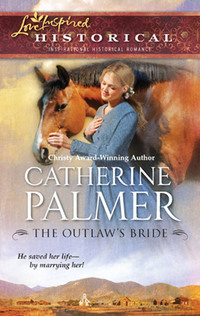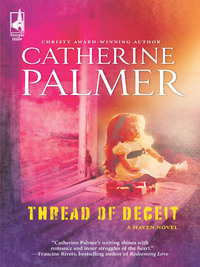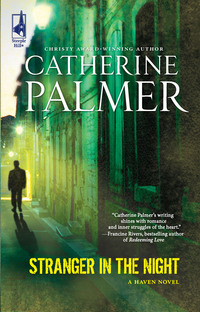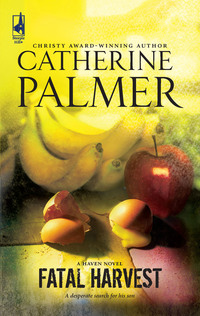
Полная версия
The Briton
So it was to be Gildan, too, Bronwen realized. Poor Gildan. For so long she had dreamed of a husband, and now that her betrothal was to be announced, she stood ashen and shivering. Bronwen longed to go and take her sister’s hand as she had done when they were children.
“My elder daughter, Bronwen,” Edgard continued, “the child who seems almost the spirit of her mother, so nearly do they look alike—I now betroth to Olaf Lothbrok.”
At the name, Bronwen gasped aloud, incredulous at her father’s words. Gildan cried out, and all the company of men began to murmur at once.
“Silence please,” Edgard spoke up. “Allow me to continue. My daughter Gildan I betroth to Aeschby Godwinson. Gildan brings to her marriage one fourth of all my gold and treasure, and upon my death I will her to receive one fourth more.”
Half! At this news, the men cheered wildly. Bronwen saw that bright spots of pink had flowed back into Gildan’s cheeks, and her sister was smiling again. Aeschby moved to the dais and stood proudly beside his betrothed.
Edgard spoke above the roar. “Bronwen brings to her marriage one half of all my gold and treasure.” He stretched out his hands, motioning for silence. “Now you must listen carefully, Britons. Hear my will to my daughter Bronwen upon my death.”
The men in the room fell silent, and even the servitors stopped to listen. Bronwen knotted her fingers together as her father continued to speak.
“When I die, Bronwen will receive all my lands and this Rossall Hall into her own hands. They will not pass under the governance of her husband, Olaf Lothbrok, as is the Briton custom. I shall not permit my possessions to slip from the hands of my tribe. If my daughter Bronwen gives birth to a son by this Viking, then the inheritance will fall to the son upon his coming of age. If she has a daughter or no child, at her death these lands will pass to Aeschby and his lineage through my daughter Gildan.”
Edgard stopped speaking for a moment and looked long at his stunned guests. Then he began to recite the many brave deeds of his forefathers, those beloved tales Bronwen knew so well. As the Briton talked, Olaf Lothbrok moved from his bench and came to stand beside her. Bronwen drew back from the touch of his woolen tunic as it grazed her hand. She could not bear to look at this man or meet the hard gaze of the silent Briton company.
Instead, she found herself staring down at her own slippers, intricately crafted of gold threads and purple embroidery. Edgard had brought them for her from the market fair in Preston, and she had saved them for this special feast. Her eyes wandered to the large leather boots of the Viking. They were caked with mud and sand, and small bits of seaweed clung to their thick crossed bindings.
Could she ever learn to care for the man who wore those boots? Would she one day look forward to the heavy sound of their entrance into her chamber? Would there be a time when her eyes grew accustomed to their presence beside her own thin slippers at the foot of their marriage bed?
Bronwen shook her head, then shuddered as she felt the barbarian’s huge hand close around her own. Why had her father done this? She could make no sense of his plans. At last she lifted her chin as the Viking beside her raised their hands high above their heads.
“And so the continuation of the great line of Briton nobles is assured,” her father was saying. “I have accomplished this by the favorable marriages of my two daughters to these worthy men.”
For a moment, the room was silent. Slowly one or two guests began to applaud, then several others pounded their mugs upon the tables. At last the entire company broke into a thunderous roar of cheering and shouting.
Bronwen looked up in time to see the group of travelers rise and move toward the door. Their tall leader bowed toward the dais, then stepped out of the great hall. Bronwen gave their departure little thought, for the eyes of the Briton guests burned into her. She dared not look into any man’s face, for she knew she would find it filled with questioning, doubt and pity.
As Edgard finished speaking, he turned to Bronwen and wrapped his arms around her, though she knew no warmth from the embrace. Then he grasped Olaf Lothbrok by the shoulders and congratulated him heartily. Finally he turned to embrace Gildan and Aeschby, and Bronwen knew she was at last free to go.
Without another look around the hall she had worked so hard to prepare, she pulled her hand from the grip of the Viking and stepped down from the dais. As she hurried toward the door, she felt a hand catch hold of her skirt.
“Welcome to the family, Briton,” one of Olaf’s men said in a mocking voice. “We look forward to the presence of a woman at our hall.”
Bronwen grasped her tunic and yanked it from the Viking’s thick fingers. As she stepped away from the table, she heard the drunken laughter of the barbarians behind her.
Running down the stone steps toward the heavy oak door that led outside from the keep, Bronwen gathered her mantle about her. She ordered the doorman to open the door, and he did so reluctantly, pressing her to carry a torch. But Bronwen pushed past him and fled into the darkness.
Dashing down the steep, pebbled hill toward the beach, she felt the frozen ground give way to sand. She threw off her veil and circlet and kicked away her shoes and mantle. The sand was cold on her feet as she raced alongside the pounding surf, and hot tears of anger and shame welled up and streamed down her cheeks. Unable to think beyond her humiliation, Bronwen ran—her long braids streaming behind her, falling loose, drifting like a tattered black flag.
Blinded with weeping, she did not see the dark form that sprang up in her path. Iron arms circled her, and a heavy cloak threatened suffocation.
“Release me!” she cried. “Guard! Guard, help me.”
“Hush, my lady.” A deep voice emanated from the darkness. The man spoke her tongue, though his accent was neither Norman French nor any other that she recognized. “I mean you no harm. What demon drives you to run through the night without fear for your safety?”
“Set me free at once! I demand it!”
“I shall hold you until you calm yourself. We had heard there were witches in Amounderness, but I had not thought to meet one this night.”
Still bound by the man’s arms, Bronwen drew back and peered up at the hooded figure. “You! You and your band of wastrels spied on our feast. Unhand me, or I shall call the guard upon you.”
The man chuckled at this and turned toward his companions, who stood in a group nearby. Bronwen caught hold of the back of his hood and jerked it down to reveal a head of glossy raven curls. But the man’s face was shrouded in darkness yet, and as he looked at her, she could not read his expression.
“So, you are the blessed bride-to-be.” He returned the hood to his head. “Your father has paired you in an interesting manner.”
Relieved that her captor did not appear to be a highwayman, she pushed away from him and sagged onto the wet sand. “Please leave me here alone. I need peace to think. Go on your way.”
The tall stranger shrugged off his outer mantle and wrapped it around her shoulders. “Why did your father betroth you to the aged Viking?” he asked.
“For one purported to be a spy, you know precious little about Amounderness. But I shall tell you, as it is all common knowledge.”
Despite her wariness of the man, she pulled his cloak about her, reveling in its warmth. “This land, known as Amounderness, has always been Briton territory. Olaf Lothbrok, my betrothed, came here as a youth when the Viking invasions had nearly subsided. He conquered the Briton lord of the holding directly to the south of Rossall Hall, where he now makes his home. Then the vile Normans came, and Amounderness was pillaged by William the Conqueror’s army.”
The man squatted on the sand beside Bronwen. He listened with obvious interest as she continued. “When William took an account of Amounderness in his Domesday Book, he recorded no remaining lords and few people at all. Some say it was because our marshy land was too difficult for his census-takers to penetrate. Perhaps so. But our tales insist that the Britons had hidden in caves and secret places of the forest.”
“And when the Normans retreated?”
“We crept out of hiding and returned to our halls. My father’s family reoccupied Rossall Hall, our ancient stronghold. And there we live, as we should, watching over our serfs as they fish and grow their meager crops. Indeed, there is not much here for the greedy Normans to covet, if they are the ones for whom you spy.”
Unable to continue speaking when her heart was so heavy, Bronwen stood and turned toward the sea. Rising beside her, the traveler touched her arm. “Olaf Lothbrok’s lands—together with your father’s—will reunite most of Amounderness under the rule of the son you are beholden to bear. A clever plan. Your sister’s future husband holds the rest of the adjoining lands, I understand.”
“You’ve done your work, sir. Your lord will be pleased. Who is he—some land-hungry Scottish baron? Or have you forgotten that King Stephen gave Amounderness to the Scots, as a trade for their support in his war with Matilda? I certainly hope your lord is not a Norman. He would be so disappointed to learn he has no legal rights here. Now, if you will excuse me, I shall return to Rossall.”
“Amounderness is Scottish by law,” the man said, stopping her short. “Would you be so sorry to see it returned to Norman hands?”
“Returned to the Normans? Amounderness belongs to the Briton tribe. Neither Stephen nor David of Scotland has deigned to set foot here. We are a pawn in their game. As far as I am concerned, it matters not who believes himself to own our land—so long as he does not bring troops or build fortresses here. Tell your lord that any man who aspired to that folly would find a mighty battle on his hands. We Britons do not intend to forfeit our holding.”
Bronwen turned and began walking back along the beach toward Rossall Hall. She felt better for her run, and having explained her father’s plan to the stranger, it didn’t seem so far-fetched anymore. Distant lights twinkled through the fog rolling in from the west, and she suddenly realized what a long way she had come.
“My lady,” the man’s voice called out behind her.
Bronwen kept walking, unwilling to speak to him again. She didn’t care what he reported to his master. She wanted only to return to the warmth of her chamber and feel the softness of Enit’s hands plaiting her hair before she dropped off to sleep.
“My lady, you have quite a walk ahead of you.” The traveler strode to her side. “I shall accompany you to your destination.”
“You leave me no choice in the matter.”
“I am not one to compromise myself, dear lady. I follow the path God has set before me and none other.”
“And just who are you?”
“I am called Jacques Le Brun.”
“French?” Given his accent, she had not expected this. “Then you are a Norman.”
The man chuckled. “Not nearly as Norman as you are Briton.”
As they approached the fortress, Bronwen could see that the guests had not yet begun to disperse. Perhaps no one had missed her, and she could slip quietly into bed beside Gildan.
She turned to go, but Le Brun took her arm and studied her face in the moonlight. Then, gently, he drew her into the folds of his hooded cloak. “Perhaps the bride would like the memory of a younger man’s embrace to warm her,” he whispered.
Astonished, Bronwen attempted to remove his arms from around her waist. But she could not escape his lips as they found her own. The kiss was soft and warm, melting away her resistance like the sun upon the snow. Before she had time to react, he was striding back down the beach.
Bronwen stood stunned for a moment, clutching his woolen mantle about her. Suddenly she cried out, “Wait, Le Brun! Your mantle!”
The dark one turned to her. “Keep it for now,” he shouted into the wind. “I shall ask for it when we meet again.”
Chapter Two
“Bronwen! Bronwen!” A thin high voice drifted through the mist. Bronwen turned from the shadow of the retreating man and looked toward the keep. Enit was searching for her.
Hurrying along the wet sand, Bronwen cried out, “Enit! I’m here!”
“Silly girl,” the nursemaid scolded as she scurried down the hill. At the bottom she picked up Bronwen’s slippers and waved them in the air. “You’ll catch your death in this cold, and I cannot say I shall be sorry to be rid of you. Hurry up, hurry up, foolish girl!”
Bronwen laughed in spite of herself. “A fool’s head never whitens, Enit,” she chirped, throwing one of the nursemaid’s favorite proverbs back at her.
Enit stopped, exasperated. “You’ll see I’m right. You’ll be sick before tomorrow. Time trieth truth.”
Bronwen slipped her arm around her old nursemaid as they made their way up the incline. “I’m to marry the Viking, Enit,” she said softly.
“I have heard.” They walked on in silence for a moment. “Your sister is pleased with her match. You must try to share her joy.”
As they passed into the courtyard and climbed the stairs, Bronwen noticed the old woman was trembling. This must be a sad day for Enit, too. Her charges soon would leave the hall and travel to new homes. The women crossed the entrance to the great hall, but Bronwen did not look inside. She could hear the throaty laughter of the men and the music of the pipers.
Soon the guests would listen to tales from the scop and gawk at the jugglers and tumblers she had hired. But Bronwen desired only to slip under the heavy warm blankets of her bed.
As she and Enit entered the sleeping chamber, Gildan rushed toward them, face aglow. “Oh, Bronwen! Where have you been? Such a day! I’m to marry Aeschby!” She whirled about the room. “I’m so happy! Did you see his face when Father said—”
Gildan stopped short when she noticed Bronwen’s wind-tangled hair and tattered gown. “Have you been on the beach? Whatever for? Oh dear sister, I’m such a fool. You aren’t happy at all.”
“I’m not happy at the moment,” Bronwen said. “That is true. But I’m not sad either. Our fate is in the hands of the gods, is it not? Now let me remove these damp tunics, and you must tell me everything Aeschby said to you.”
Enit pushed Bronwen toward the fire, then bustled about stripping off the damp gowns and rubbing the girl down with heavy linen cloths. Gildan, too excited to sympathize long with Bronwen’s situation, chatted joyfully as she combed the tangles from her sister’s hair.
Soon Enit ordered her charges to bed and took her own place on the cot outside their door. While Gildan slept, Bronwen lay staring up at the dark ceiling, too troubled to sleep despite her exhaustion. She had been betrothed to the old Viking—and then the dark stranger had taken her in his arms. But one memory weighed even more heavily than the other. Why had she not resisted the Norman’s embrace? She had been taught to despise his breed—and truly she did. Yet, why did the warmth of his kiss still linger on her lips? And what of his parting words? Certainly their paths would never cross again.
And yet…
Bronwen reached for the woolen mantle she had pushed under a blanket so no one would notice it. She held it to her cheek and recalled her wild run down the beach. A faintly spicy scent still clung to the folds of the garment, evoking the presence of the raven-haired traveler.
A girl must marry for the good of her family, Bronwen reminded herself as she closed her eyes and stroked the rough black wool. Everyone knew that.
Yet, was it possible that the gods who inhabited the trees and the stones and the driving seas that surrounded Amounderness had another destiny in store for her?
The morning dawned under threatening skies, and Bronwen awoke to Gildan’s fervent tugging.
“It worked! It worked, Bronwen,” Gildan cried. “I dreamt of my future husband. I put one shoe on either side of the bed, as Enit told me. Then I put rosemary in one and thyme in the other. I slept on my back all night. And I did dream of the one I’m to marry—Aeschby!”
Gildan danced around the room, her gowns flying. “Get up, silly goose! We must make haste to welcome the day. Hurry.”
At the commotion, Enit entered the room and began to take the sisters’ tunics from a wooden chest.
“My red one, Enit,” Gildan commanded. “And for my sister, the purple.”
Bronwen struggled from the bed and quickly opened another chest to hide the mantle Le Brun had wrapped around her the night before. As she combed out her long hair, Enit dressed her. Then Bronwen plaited her hair and slipped on her shoes.
“Are you well, Bronwen?” Enit asked.
“Quite,” Bronwen replied.
“Good, then listen closely to what I tell you now.” Enit spoke in a low voice. “The Viking fears that a large storm is gathering and will hinder his sea passage, making his land vulnerable to attack during his absence. He insists that your marriage ceremony take place tomorrow.”
Bronwen was too stunned to reply. She had thought the wedding was weeks or even months away. Before she could question Enit further, Gildan pulled her down the stairs into the hall. It was crowded with men, some still sleeping and others conversing quietly. Servants carried about jugs of frumenty and chamomile tea. Bronwen accepted a bowl of the hot, spicy frumenty and took a spoonful. The milky concoction laden with raisins warmed her stomach.
“Your appetite has returned, daughter,” Edgard said, coming up behind her. Despite the night’s revelries, her father looked hale and wore a broad grin. “I know the announcement of your betrothal was unexpected. Yet, I hope not too unpleasant. Lothbrok is a good man, and he will treat you fairly.”
“But, Father, must the wedding take place so soon? Surely it is not our custom nor the Vikings’ to have a wedding follow an engagement by two short days!”
Edgard frowned. “I worry more about the reaction to my will than I do about this hasty wedding to a Norseman.”
Bronwen knew by his tone of voice that arguing was futile. “I believe all will be well. Enit told me there was much excitement in the kitchen last night.”
Edgard nodded. “It is a novel idea, but I saw no better way to preserve our holdings. After lengthy negotiation, Lothbrok agreed. Come with me, daughter. I must show you something.”
Bronwen followed her father from the hall toward the chamber built below ground many generations before. As they made their way through the darkness, she heard him fumbling with his keys. At length, they reached the door that Bronwen knew led into the treasure room. Her father unlocked the door and beckoned her inside.
The chamber was filled with wooden chests, one stacked upon another, and all locked and sealed. Once, as a child, when she and Gildan had been exploring the keep and its grounds, they had come upon this room. Bronwen had to smile at the memories of her adventures with her reluctant sister. Scaling the timber palisade that surrounded the keep, getting lost in the forest, stumbling upon the entrance to a secret tunnel and following it from outside the walls to a trapdoor ending somewhere deep beneath the fortress—all were a part of the childhood she soon would leave behind forever.
“These treasures one day will be yours,” Edgard said, interrupting her thoughts. “Some will go to Gildan, of course. Gold coins and bars fill the chests. Several contain jewels. When I am gone, Bronwen, you must see that this room is well guarded.”
“Yes, Father,” Bronwen answered, conscious of the great responsibility he placed upon her.
“But this small chest contains the greatest treasure of all.” Edgard lifted an ornate gold box to the torchlight. “It is my will—set down in writing. As you well know, in declaring that you will inherit my domain upon my death, I have broken a long Briton tradition. Some of our countrymen may see fit to overlook or disregard the pronouncement. But beyond providing us with a reliable ally in Lothbrok, this document does two important things.”
“What are they, Father?”
“It keeps these holdings in Briton hands. Though they be the hands of a woman, you are capable of managing them. Of this I am confident. And this will encourages you to bear a son soon or to remarry quickly should Lothbrok die. Though the lands will be yours, you must remarry in order to provide a reliable caretaker.”
“Why Lothbrok?” Bronwen asked. “Aeschby is the stronger ally.”
“I had to give you to the weaker. If Gildan were to wed Olaf, nothing would prevent his changing loyalties upon an invasion. He could simply conquer Rossall for himself under the authority of King Stephen or Matilda. But with you as Olaf’s wife, Bronwen, he has hope of securing our lands through a child. The Viking will defend all lands destined for his future heirs.”
Bronwen knew her father spoke the truth. And like him, she felt confident that she was as well trained to oversee the land and serfs as a son would have been. Indeed, she had been left in charge several times when her father had gone away to battle or to meet with other lords. Yet the law of inheritance remained, and she accepted that it was right for a man to be the primary caretaker of an estate and all its assets.
“The will inside this box,” Edgard told her as he drew a golden key from his cloak and inserted it into the lock, “was inscribed by the same scholar who came from Preston to teach you and Gildan to speak the French tongue of Britain’s Norman invaders.”
When her father lifted the lid, Bronwen saw a folded parchment imprinted with her father’s seal. He touched it with his fingertips as he spoke. “Whether written in my native tongue or in French, I cannot read this document to know what was written. But my marshal assured me the scribe was an honest man. And he taught you well, did he not?”
Bronwen recalled the months the balding man had spent instructing her and Gildan in the cramped room behind the great hall. She had objected to having to learn Norman French. After all, why should they compromise themselves to speak that hated tongue?
“Times are changing, daughter,” Edgard spoke up. “You do not know half of what happens now in England. There is much turmoil, and our dream of reuniting this island under Briton rule grows ever more dim. Though I send out my spies and discuss such matters with other Briton landholders, even I am unaware of many things. But this I know—the written oath will prove more convincing than the spoken.”
“Can this be possible, Father?” Bronwen asked. “Among the Britons, a man’s word must be true. The history of our people is known only through the stories and ballads of the scops and bards. Few Britons can read and write more than their names. Indeed, I believe Gildan and I may be the only speakers of Norman French in all Amounderness.”
“This is a new world, daughter,” Edgard said in a low voice. “And not a good one. Promise me you will guard this box, Bronwen. Keep the key always about your neck. Never take it off!”
“Of course, and may the gods protect it.” She took the golden key and slipped it onto the chain about her neck. By the urgency of her father’s speech, she understood that his strange deed was important. More than once he had consulted with those deep forest-dwellers who could foresee the future, and his plans had served their family.
“Father, I thank you for leaving me your lands. Though I cannot desire a union with the Viking Lothbrok, I understand its purpose. I shall obey you, as I always have. My desire is to bear a son soon, that you may know our Briton line continues.”
Edgard smiled. “Your obedience pleases me, Bronwen. When you depart Rossall, carry this box with you unobserved. No one must suspect its contents. Come let us return now to the hall, for we must prepare to see you wed.”
As they climbed the stairs and approached the great hall again, Bronwen spotted a young man with flaming red hair. He sat with his back against the wall, a desolate expression on his face. Concerned as always for her people, she tucked the golden will box under her cloak, left her father’s side and went to him.





